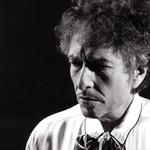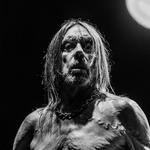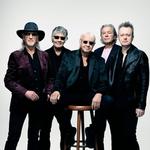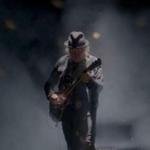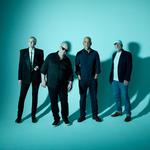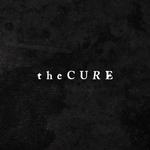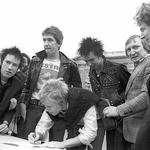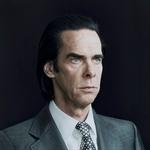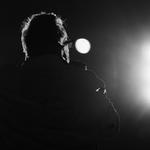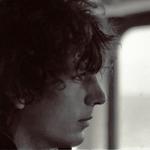
Syd Barrett
Roger Keith ("Syd") Barrett (born January 6, 1946 in Cambridge, England, died 7th July 2006 in Cambridge, England) was a British singer-songwriter and guitarist. Best remembered as one of the founding members of the group Pink Floyd, Barrett was active as a rock musician for only a few years, before problems forced him into obscurity, but he has been remarkably influential. Pink Floyd (originally called both "Tea Set" and "The Pink Floyd Sound", then later "The Pink Floyd") was formed in 1965. Barrett acquired the nickname "Syd" at the age of 15, a reference to an old local Cambridge drummer, Sid Barrett. Syd changed the spelling in order to differentiate himself from his namesake. He named the band after two obscure bluesmen, Pink Anderson and Floyd Council. While the band began by playing cover versions of American R&B songs (much in the same vein as contemporaries The Rolling Stones, The Yardbirds, and The Kinks), they carved out their own style of improvised rock and roll by 1966, which drew as much from improvised jazz as it did from British pop-rock, such as that championed by The Beatles. In that year, a new rock concert venue, the UFO, opened in London and quickly became a haven for British psychedelic music. Pink Floyd became their most popular attraction, and, after making appearances at the rival Roundhouse, became the most popular musical group of the so-called "London Underground" psychedelic music scene.
By the end of 1966, Pink Floyd had gained a reliable management team in Andrew King and Peter Jenner. The duo soon befriended American expatriate Joe Boyd, who was actively making a name for himself as one of the more important entrepreneurs on the British music scene. Boyd produced a recording session for the group in January 1967 at Sound Techniques in Chelsea, which resulted in a demo of the single "Arnold Layne". King and Jenner took the song to the recording behemoth EMI, who were impressed enough to offer the band a contract, under which they would be allowed to record an album. The band accepted. By the time the album was released, "Arnold Layne" had reached #21 on the British singles charts (despite a ban by the BBC) and a follow-up single, "See Emily Play" had sold even better, peaking at #6.
These first two singles, as well as a third ("Apples and Oranges"), were written by Syd Barrett. Barrett wrote most of the Floyd's early material, and was the principal visionary/author of their critically acclaimed 1967 debut album, The Piper at the Gates of Dawn. Of the 11 songs on Piper, Barrett wrote eight and co-wrote another two. He was also an innovative guitarist, exploring the musical and sonic possibilities of dissonance, distortion, feedback, and the echo machine; his experimentation was partly inspired by free improvisation guitarist Keith Rowe. One of Barrett's trademarks was playing his Fender Esquire guitar by sliding a Zippo lighter up and down the fret-board through an old echo box to create the mysterious, otherworldly sounds that became associated with the group.
The Piper at the Gates of Dawn was recorded intermittently between January and July 1967, much of that time in the studio right next door to recording sessions for The Beatles' landmark album, Sgt. Pepper's Lonely Hearts Club Band. When Piper was released in August of that year, it became a smash hit in the UK, hitting #6 on the British album charts (the album was not nearly so successful in the USA). However, as the band began to attract a large fanbase, the pressures placed on Barrett contributed to him experiencing increasing psychiatric illness.
There are many stories about Barrett's bizarre and intermittently psychotic behaviour - many of which are undoubtedly apocryphal, although some are known to be true. In one such incident Barrett came into a practice session with a new song he had dubbed "Have You Got It, Yet?" The song seemed simple enough when he first presented it to his bandmates, but it soon became impossibly difficult to learn: as they were practicing it, Barrett kept changing the arrangement. He would then play it again, with the arbitrary changes, and sing "Have you got it yet?"; his bandmates never quite did.
Barrett's behaviour became increasingly unpredictable, partly as a consequence of frequent experimentation with psychedelic drugs such as LSD. Many report seeing him on stage with the group, strumming on one chord through the entire concert, or not playing at all. At a show in San Francisco, during a performance of "Interstellar Overdrive", Barrett slowly untuned his guitar. Audiences seemed to enjoy such antics, unaware of the rest of the band's consternation. At another show Waters remembered Barrett putting hair gel (purportedly mixed with crushed Mandrax) on to his head which subsequently melted down his face under the heat of the stage lighting.
Following a disastrous abridged tour of the United States, David Gilmour (a school friend of Barrett's) was asked to join the band as a second guitarist in order to cover for Barrett as Barrett's erratic behaviour prevented him from performing. For a handful of shows David played and sang while Barrett wandered around on stage, occasionally deigning to join in playing. The other band members soon tired of Barrett's antics, and in January 1968, on the way to a show at Southampton University, the band elected not to pick Barrett up. They attempted to retain him in the group as a songwriter, but this proved infeasible.
Barrett did not contribute any material to the band after A Saucerful of Secrets was released in 1968. Of the songs he recorded with Pink Floyd after Piper, only one ("Jugband Blues") made it to the band's second album; one became a less-than-successful single ("Apples and Oranges") and two others were never officially released ("Scream Thy Last Scream" and "Vegetable Man"). Barrett reputedly spent some time outside the recording studio, waiting to be invited in (he also showed up to a few gigs and glared at Gilmour), it's possible that his contributions to the album (guitar on some of the tracks) were included as a concession to him. In March 1968 it was officially announced that he was no longer a member of Pink Floyd.
Solo years (1968–1972)
After leaving Pink Floyd, Barrett distanced himself from the public eye. However, at the behest of EMI and Harvest Records, he did have a brief solo career, releasing two mercurial solo albums, The Madcap Laughs and Barrett. Much controversy has risen around the production work - which left Barrett's more vulnerable moments on tape to give the records a more "authentic" feel - but many feel the treatment did Barrett few favours and instead took advantage of his fragile condition. Much of the material on both albums dates from Barrett's most productive period of songwriting and it is believed that he wrote few new songs after he left Pink Floyd.
The first album, The Madcap Laughs, was recorded in two distinct sessions: a few tentative sessions took place between May and June 1968 (produced first by Peter Jenner and then by Malcolm Jones), while the bulk of the album was recorded between April and July 1969 (produced by David Gilmour and Roger Waters). This album offers an insight into Barrett's state of mind at the time; tracks such as "Dark Globe", have been seen as first-person narratives of schizophrenia. A few tracks on the album feature overdubs by members of the band Soft Machine.
The second album, Barrett, was recorded more sporadically than the first, with sessions taking place between February and July 1970. This effort sounds more polished than the first, but Barrett was arguably in a worse state. This one was produced by David Gilmour and featured Gilmour on bass guitar, Rick Wright on keyboard and Humble Pie drummer Jerry Shirley.
Despite the numerous recording dates for his two solo albums, Barrett undertook very little musical activity between 1968 and 1972 outside the studio. On February 24th, 1970, he appeared on John Peel's BBC radio programme Top Gear playing five songs - only one of which had been previously released. Three would be re-recorded for the Barrett album, while the song Two of a Kind was a one-off performance. (The song appears on the 2001 greatest hits album The Best Of Syd Barrett: Wouldn't You Miss Me?) Barrett was accompanied on this session by David Gilmour and Jerry Shirley who played bass and percussion, respectively.
Gilmour and Shirley also backed Barrett for his one and only live concert during this period. The gig took place on June 6th, 1970 at the Olympia Exhibition Hall, London, and was part of a "Music and Fashion Festival". The trio performed four songs, playing for less than half an hour, and due to poor mixing, the vocals were inaudible until part-way through the last number. At the end of the fourth song, Barrett unexpectedly but politely put down his guitar and walked off the stage.
Syd Barrett made one last appearance on BBC Radio, recording three songs at their studios on February 16th, 1971. All three came from the Barrett album, and were presumably aired to encourage people to buy the record. At this stage, though, Barrett seemed to have little interest in recording music, and even less interest in performing it live. After this session, he would take a hiatus from his music career that lasted more than a year.
Later years (1972—2006)
In 1972, Barrett formed a short-lived band called Stars with ex-Pink Fairies member Twink on drums and Jack Monck on bass. Though the band was initially well-received, one of their gigs at the Corn Exchange in Cambridge proved to be disastrous and Barrett decided to leave soon afterwards.
In 1974, Peter Jenner convinced Barrett to return to Abbey Road Studios in hope of recording another album. However, little became of the sessions, which lasted three days and consisted of blues rhythm tracks with tentative and disjointed guitar overdubs (the only titled track is the intriguing "If You Go, Don't Be Slow"). Once again, Barrett withdrew from the music industry. He sold the rights to his solo albums back to the record label, moved into a London hotel and when the money ran out he walked back to Cambridge to live in his mother's basement. Further attempts to bring him back (including one endeavour by The Damned who wanted him to produce their debut album) were all fruitless. Barrett still received royalties from his work with Pink Floyd from each compilation and some of the live albums and singles that have featured his songs; Gilmour had commented that he "makes sure the money gets to him alright."
Syd Barrett had one noted reunion with Pink Floyd in 1975 during the recording sessions for Wish You Were Here. Barrett attended the Abbey Road session unannounced and watched the band record Shine on You Crazy Diamond — coincidentally, a song about him. At that time Syd had gained a lot of weight and had shaved off all of his hair, including his eyebrows, and his ex-bandmates did not at first recognise him. Eventually they realised who he was and Roger Waters was so distressed that he was reduced to tears. Members of the band also reported on their featured VH1 episode of Behind The Music that Barrett held a toothbrush and attempted to brush his teeth by holding the brush still and jumping up and down. A reference to this reunion appears in the film Pink Floyd: The Wall (1982), where the character "Pink", played by Bob Geldof, shaves off his eyebrows after succumbing to the pressures of life and fame.
In 1988, EMI Records released an album of Barrett's studio outtakes and previously unreleased material recorded from 1968 to 1970 under the title Opel. In 1993 it issued another release, Crazy Diamond, a box set of all three albums, each loaded with further out-takes from his solo sessions that illustrated vividly Barrett's inability or refusal to play a song the same way twice.
EMI also released The Best Of Syd Barrett: Wouldn't You Miss Me? in the UK on April 16, 2001, and in the United States on September 11, 2001. This was the first time his song "Bob Dylan Blues" was ever officially released, taken from a demo tape that David Gilmour had kept after an early 70s recording session. Also worthy of mention is the bootleg collection Have You Got It Yet?, a 19-disc audio/visual compilation composed of several live performances of Barrett both solo and with Pink Floyd, containing some versions considered superior to those that were officially released. Among the main attractions of the collection are tracks for his never-released third album. There are also interviews with other Pink Floyd members, video footage and covers from other artists.
The Recent life and death of Syd Barrett
According to a 2005 profile by his biographer Tim Willis, Barrett, who had reverted to using his original name of Roger, continued to live in his late mother's semi-detached home in Cambridge, and had returned to his original art-form of painting, creating large abstract canvases. He was also said to be an avid gardener. His main point of contact with the outside world was his sister, Rosemary, who lived nearby. While reclusive, it was his physical health that then prompted most concern, being afflicted with stomach ulcers and B-type diabetes.
Although Barrett had not appeared or spoken in public since the mid-1970s, time had done little to diminish interest in his life and work; reporters and fans still traveled to Cambridge to seek him out, despite his attempts to live a quiet life. Many photos, from the 1980s to the year of his death, of Barrett being annoyed by paparazzi when walking or biking to the store had been published in various places. A planned screen biography entitled "Crazy Diamond," which was to have been produced by Ridley Scott and directed by former Pink Floyd collaborator Peter Medak from a script by Ted Shuttleworth, ran into legal and rights issues and has been shelved indefinitely.
He was apparently not happy being reminded about his past as a musician and the other members of Pink Floyd had no direct contact with him. However, he did go to his sister's house in 2002 to watch the BBC Omnibus documentary made about him - apparently he found some of it "too noisy", though he's said to have enjoyed hearing "See Emily Play" again.
But, everything came to an end. On July 7, 2006, Syd passed away at age 60. His death was a result of complications of diabetes. The members of Pink Floyd were distraught to learn of Syd's death. But even after death, his legacy and influence on music and the lives of his friends he has found in his family and his former band still and will always live on.
Mental illness
There has been much speculation concerning the psychological well-being of Syd Barrett. Many believe he suffered from schizophrenia, though he didn't totally fit the typical profile for that condition. Additionally, some have suggested that Barrett had traits associated with Asperger's Syndrome, a condition most often placed on the autism spectrum.
Barrett's use of recreational drugs, especially LSD, during the 1960s is well-documented. Some believe that Barrett's drug use helped trigger his mental illness. In an article published in 2006, Gilmour was quoted as saying: "In my opinion, [his breakdown] would have happened anyway. It was a deep-rooted thing. But I'll say the psychedelic experience might well have acted as a catalyst. Still, I just don't think he could deal with the vision of success and all the things that went with it".
There is also the possibility that the sudden death of his father (a respected pathologist) when he was 11 caused him considerable anguish and left emotional scars that probably, among other things, sowed some of the seeds of his later malaise. The subject matter of a lot of his songs, the nursery rhymes and fairy tale fantasies, were reminiscent for him of a "happier" period of his childhood before his father's passing.
Influence in music
Many artists have acknowledged Barrett's influence on their work. Paul McCartney and Pete Townshend were early fans; Jimmy Page, David Bowie, Brian Eno and The Damned all expressed interest in working with him at some point during the 1970s. In fact, Bowie recorded a cover of "See Emily Play" on his 1973 album Pin Ups.
Barrett's decline had a profound effect on Roger Waters' song-writing, and the theme of mental illness would permeate Pink Floyd's later albums, particularly 1973's Dark Side of the Moon and 1979's The Wall. One track from Dark Side of the Moon, entitled Brain Damage, contains a specific reference to Barrett's mental illness. A later line in the song references a band playing a different song, which is a situation Barrett often got into when suffering from the symptoms of his mental illness. Wish You Were Here (1975) was a conscious tribute to Barrett. Other artists that have written tributes to Barrett include his contemporary Kevin Ayers (of the Soft Machine), who wrote the song "Oh! Wot a Dream" as a tribute (Barrett provided guitar to an early version of Ayers' "Singing a Song in the Morning"). Barrett fan Robyn Hitchcock is repeatedly compared to Barrett, has covered many of his songs live and on record and has paid homage to his forebearer with the songs "The Man Who Invented Himself" and "(Feels Like) 1974". Television Personalities track "I Know Where Syd Barrett Lives" is another well-known tribute, apparently based on fact.
R.E.M. has covered the haunting "Dark Globe", as have Soundgarden, Placebo and Lost And Profound. The Smashing Pumpkins have covered "Terrapin". The industrial collective Ritalin (spelled "Rx"), composed of Kevin Ogilvie (nivek ogre) and Martin Atkins have recorded a version of "Scarecrow". At the Drive-In's frontmen (now the main members of The Mars Volta) covered "Take Up Thy Stethoscope and Walk" and have claimed that they tried constantly to emulate The Piper at the Gates of Dawn's sound in their music. London Px covered "Arnold Layne". Slowdive covered "Golden Hair", which was a Syd Barrett version of the poem by James Joyce, on their EP Holding Our Breath. Phish has performed several Barrett solo songs in concert, including "Love You," "Terrapin", "Baby Lemonade," "It's No Good Trying," and the Piper at the Gates of Dawn track "Bike".
Other artists/bands that have claimed influence and/or covered Barrett's work include Asatang Onapig,Etienne Daho, This Mortal Coil, Marc Bolan, The Jesus and Mary Chain, Robert Smith (of The Cure), Kevin Shields (of My Bloody Valentine), Primal Scream, The Libertines, Dirty Pretty Things, The Beta Band, Lone Pigeon, Julian Cope, Robyn Hitchcock, The Flaming Lips, R.E.M., Mercury Rev, East Bay Ray (of the Dead Kennedys), Gary Lucas, Camper Van Beethoven, Voivod, Pearl Jam, Love and Rockets, Elevator to Hell, Melvins, Transatlantic, Phish, Dream Theater, Graham Coxon (formerly of Blur), John Frusciante (of the Red Hot Chili Peppers), Skobot Bzzzz, and Replicants (Ken Andrews, Greg Edwards, Paul D'Amour, and Chris Pitman) and apple rabbits,
Most bands in the Elephant 6 collective, such as of Montreal, have a very distinct Barrett influence in their music, and Italian group Jennifer Gentle (named after a line from The Piper at the Gates of Dawn's "Lucifer Sam") emulates the sound of Piper and Barrett's solo work.
On tour
No
Followers
118,045
Category
Psychedelic Rock, Rock
Similar Artists On Tour
About Syd Barrett
Roger Keith ("Syd") Barrett (born January 6, 1946 in Cambridge, England, died 7th July 2006 in Cambridge, England) was a British singer-songwriter and guitarist. Best remembered as one of the founding members of the group Pink Floyd, Barrett was active as a rock musician for only a few years, before problems forced him into obscurity, but he has been remarkably influential. Pink Floyd (originally called both "Tea Set" and "The Pink Floyd Sound", then later "The Pink Floyd") was formed in 1965. Barrett acquired the nickname "Syd" at the age of 15, a reference to an old local Cambridge drummer, Sid Barrett. Syd changed the spelling in order to differentiate himself from his namesake. He named the band after two obscure bluesmen, Pink Anderson and Floyd Council. While the band began by playing cover versions of American R&B songs (much in the same vein as contemporaries The Rolling Stones, The Yardbirds, and The Kinks), they carved out their own style of improvised rock and roll by 1966, which drew as much from improvised jazz as it did from British pop-rock, such as that championed by The Beatles. In that year, a new rock concert venue, the UFO, opened in London and quickly became a haven for British psychedelic music. Pink Floyd became their most popular attraction, and, after making appearances at the rival Roundhouse, became the most popular musical group of the so-called "London Underground" psychedelic music scene.
By the end of 1966, Pink Floyd had gained a reliable management team in Andrew King and Peter Jenner. The duo soon befriended American expatriate Joe Boyd, who was actively making a name for himself as one of the more important entrepreneurs on the British music scene. Boyd produced a recording session for the group in January 1967 at Sound Techniques in Chelsea, which resulted in a demo of the single "Arnold Layne". King and Jenner took the song to the recording behemoth EMI, who were impressed enough to offer the band a contract, under which they would be allowed to record an album. The band accepted. By the time the album was released, "Arnold Layne" had reached #21 on the British singles charts (despite a ban by the BBC) and a follow-up single, "See Emily Play" had sold even better, peaking at #6.
These first two singles, as well as a third ("Apples and Oranges"), were written by Syd Barrett. Barrett wrote most of the Floyd's early material, and was the principal visionary/author of their critically acclaimed 1967 debut album, The Piper at the Gates of Dawn. Of the 11 songs on Piper, Barrett wrote eight and co-wrote another two. He was also an innovative guitarist, exploring the musical and sonic possibilities of dissonance, distortion, feedback, and the echo machine; his experimentation was partly inspired by free improvisation guitarist Keith Rowe. One of Barrett's trademarks was playing his Fender Esquire guitar by sliding a Zippo lighter up and down the fret-board through an old echo box to create the mysterious, otherworldly sounds that became associated with the group.
The Piper at the Gates of Dawn was recorded intermittently between January and July 1967, much of that time in the studio right next door to recording sessions for The Beatles' landmark album, Sgt. Pepper's Lonely Hearts Club Band. When Piper was released in August of that year, it became a smash hit in the UK, hitting #6 on the British album charts (the album was not nearly so successful in the USA). However, as the band began to attract a large fanbase, the pressures placed on Barrett contributed to him experiencing increasing psychiatric illness.
There are many stories about Barrett's bizarre and intermittently psychotic behaviour - many of which are undoubtedly apocryphal, although some are known to be true. In one such incident Barrett came into a practice session with a new song he had dubbed "Have You Got It, Yet?" The song seemed simple enough when he first presented it to his bandmates, but it soon became impossibly difficult to learn: as they were practicing it, Barrett kept changing the arrangement. He would then play it again, with the arbitrary changes, and sing "Have you got it yet?"; his bandmates never quite did.
Barrett's behaviour became increasingly unpredictable, partly as a consequence of frequent experimentation with psychedelic drugs such as LSD. Many report seeing him on stage with the group, strumming on one chord through the entire concert, or not playing at all. At a show in San Francisco, during a performance of "Interstellar Overdrive", Barrett slowly untuned his guitar. Audiences seemed to enjoy such antics, unaware of the rest of the band's consternation. At another show Waters remembered Barrett putting hair gel (purportedly mixed with crushed Mandrax) on to his head which subsequently melted down his face under the heat of the stage lighting.
Following a disastrous abridged tour of the United States, David Gilmour (a school friend of Barrett's) was asked to join the band as a second guitarist in order to cover for Barrett as Barrett's erratic behaviour prevented him from performing. For a handful of shows David played and sang while Barrett wandered around on stage, occasionally deigning to join in playing. The other band members soon tired of Barrett's antics, and in January 1968, on the way to a show at Southampton University, the band elected not to pick Barrett up. They attempted to retain him in the group as a songwriter, but this proved infeasible.
Barrett did not contribute any material to the band after A Saucerful of Secrets was released in 1968. Of the songs he recorded with Pink Floyd after Piper, only one ("Jugband Blues") made it to the band's second album; one became a less-than-successful single ("Apples and Oranges") and two others were never officially released ("Scream Thy Last Scream" and "Vegetable Man"). Barrett reputedly spent some time outside the recording studio, waiting to be invited in (he also showed up to a few gigs and glared at Gilmour), it's possible that his contributions to the album (guitar on some of the tracks) were included as a concession to him. In March 1968 it was officially announced that he was no longer a member of Pink Floyd.
Solo years (1968–1972)
After leaving Pink Floyd, Barrett distanced himself from the public eye. However, at the behest of EMI and Harvest Records, he did have a brief solo career, releasing two mercurial solo albums, The Madcap Laughs and Barrett. Much controversy has risen around the production work - which left Barrett's more vulnerable moments on tape to give the records a more "authentic" feel - but many feel the treatment did Barrett few favours and instead took advantage of his fragile condition. Much of the material on both albums dates from Barrett's most productive period of songwriting and it is believed that he wrote few new songs after he left Pink Floyd.
The first album, The Madcap Laughs, was recorded in two distinct sessions: a few tentative sessions took place between May and June 1968 (produced first by Peter Jenner and then by Malcolm Jones), while the bulk of the album was recorded between April and July 1969 (produced by David Gilmour and Roger Waters). This album offers an insight into Barrett's state of mind at the time; tracks such as "Dark Globe", have been seen as first-person narratives of schizophrenia. A few tracks on the album feature overdubs by members of the band Soft Machine.
The second album, Barrett, was recorded more sporadically than the first, with sessions taking place between February and July 1970. This effort sounds more polished than the first, but Barrett was arguably in a worse state. This one was produced by David Gilmour and featured Gilmour on bass guitar, Rick Wright on keyboard and Humble Pie drummer Jerry Shirley.
Despite the numerous recording dates for his two solo albums, Barrett undertook very little musical activity between 1968 and 1972 outside the studio. On February 24th, 1970, he appeared on John Peel's BBC radio programme Top Gear playing five songs - only one of which had been previously released. Three would be re-recorded for the Barrett album, while the song Two of a Kind was a one-off performance. (The song appears on the 2001 greatest hits album The Best Of Syd Barrett: Wouldn't You Miss Me?) Barrett was accompanied on this session by David Gilmour and Jerry Shirley who played bass and percussion, respectively.
Gilmour and Shirley also backed Barrett for his one and only live concert during this period. The gig took place on June 6th, 1970 at the Olympia Exhibition Hall, London, and was part of a "Music and Fashion Festival". The trio performed four songs, playing for less than half an hour, and due to poor mixing, the vocals were inaudible until part-way through the last number. At the end of the fourth song, Barrett unexpectedly but politely put down his guitar and walked off the stage.
Syd Barrett made one last appearance on BBC Radio, recording three songs at their studios on February 16th, 1971. All three came from the Barrett album, and were presumably aired to encourage people to buy the record. At this stage, though, Barrett seemed to have little interest in recording music, and even less interest in performing it live. After this session, he would take a hiatus from his music career that lasted more than a year.
Later years (1972—2006)
In 1972, Barrett formed a short-lived band called Stars with ex-Pink Fairies member Twink on drums and Jack Monck on bass. Though the band was initially well-received, one of their gigs at the Corn Exchange in Cambridge proved to be disastrous and Barrett decided to leave soon afterwards.
In 1974, Peter Jenner convinced Barrett to return to Abbey Road Studios in hope of recording another album. However, little became of the sessions, which lasted three days and consisted of blues rhythm tracks with tentative and disjointed guitar overdubs (the only titled track is the intriguing "If You Go, Don't Be Slow"). Once again, Barrett withdrew from the music industry. He sold the rights to his solo albums back to the record label, moved into a London hotel and when the money ran out he walked back to Cambridge to live in his mother's basement. Further attempts to bring him back (including one endeavour by The Damned who wanted him to produce their debut album) were all fruitless. Barrett still received royalties from his work with Pink Floyd from each compilation and some of the live albums and singles that have featured his songs; Gilmour had commented that he "makes sure the money gets to him alright."
Syd Barrett had one noted reunion with Pink Floyd in 1975 during the recording sessions for Wish You Were Here. Barrett attended the Abbey Road session unannounced and watched the band record Shine on You Crazy Diamond — coincidentally, a song about him. At that time Syd had gained a lot of weight and had shaved off all of his hair, including his eyebrows, and his ex-bandmates did not at first recognise him. Eventually they realised who he was and Roger Waters was so distressed that he was reduced to tears. Members of the band also reported on their featured VH1 episode of Behind The Music that Barrett held a toothbrush and attempted to brush his teeth by holding the brush still and jumping up and down. A reference to this reunion appears in the film Pink Floyd: The Wall (1982), where the character "Pink", played by Bob Geldof, shaves off his eyebrows after succumbing to the pressures of life and fame.
In 1988, EMI Records released an album of Barrett's studio outtakes and previously unreleased material recorded from 1968 to 1970 under the title Opel. In 1993 it issued another release, Crazy Diamond, a box set of all three albums, each loaded with further out-takes from his solo sessions that illustrated vividly Barrett's inability or refusal to play a song the same way twice.
EMI also released The Best Of Syd Barrett: Wouldn't You Miss Me? in the UK on April 16, 2001, and in the United States on September 11, 2001. This was the first time his song "Bob Dylan Blues" was ever officially released, taken from a demo tape that David Gilmour had kept after an early 70s recording session. Also worthy of mention is the bootleg collection Have You Got It Yet?, a 19-disc audio/visual compilation composed of several live performances of Barrett both solo and with Pink Floyd, containing some versions considered superior to those that were officially released. Among the main attractions of the collection are tracks for his never-released third album. There are also interviews with other Pink Floyd members, video footage and covers from other artists.
The Recent life and death of Syd Barrett
According to a 2005 profile by his biographer Tim Willis, Barrett, who had reverted to using his original name of Roger, continued to live in his late mother's semi-detached home in Cambridge, and had returned to his original art-form of painting, creating large abstract canvases. He was also said to be an avid gardener. His main point of contact with the outside world was his sister, Rosemary, who lived nearby. While reclusive, it was his physical health that then prompted most concern, being afflicted with stomach ulcers and B-type diabetes.
Although Barrett had not appeared or spoken in public since the mid-1970s, time had done little to diminish interest in his life and work; reporters and fans still traveled to Cambridge to seek him out, despite his attempts to live a quiet life. Many photos, from the 1980s to the year of his death, of Barrett being annoyed by paparazzi when walking or biking to the store had been published in various places. A planned screen biography entitled "Crazy Diamond," which was to have been produced by Ridley Scott and directed by former Pink Floyd collaborator Peter Medak from a script by Ted Shuttleworth, ran into legal and rights issues and has been shelved indefinitely.
He was apparently not happy being reminded about his past as a musician and the other members of Pink Floyd had no direct contact with him. However, he did go to his sister's house in 2002 to watch the BBC Omnibus documentary made about him - apparently he found some of it "too noisy", though he's said to have enjoyed hearing "See Emily Play" again.
But, everything came to an end. On July 7, 2006, Syd passed away at age 60. His death was a result of complications of diabetes. The members of Pink Floyd were distraught to learn of Syd's death. But even after death, his legacy and influence on music and the lives of his friends he has found in his family and his former band still and will always live on.
Mental illness
There has been much speculation concerning the psychological well-being of Syd Barrett. Many believe he suffered from schizophrenia, though he didn't totally fit the typical profile for that condition. Additionally, some have suggested that Barrett had traits associated with Asperger's Syndrome, a condition most often placed on the autism spectrum.
Barrett's use of recreational drugs, especially LSD, during the 1960s is well-documented. Some believe that Barrett's drug use helped trigger his mental illness. In an article published in 2006, Gilmour was quoted as saying: "In my opinion, [his breakdown] would have happened anyway. It was a deep-rooted thing. But I'll say the psychedelic experience might well have acted as a catalyst. Still, I just don't think he could deal with the vision of success and all the things that went with it".
There is also the possibility that the sudden death of his father (a respected pathologist) when he was 11 caused him considerable anguish and left emotional scars that probably, among other things, sowed some of the seeds of his later malaise. The subject matter of a lot of his songs, the nursery rhymes and fairy tale fantasies, were reminiscent for him of a "happier" period of his childhood before his father's passing.
Influence in music
Many artists have acknowledged Barrett's influence on their work. Paul McCartney and Pete Townshend were early fans; Jimmy Page, David Bowie, Brian Eno and The Damned all expressed interest in working with him at some point during the 1970s. In fact, Bowie recorded a cover of "See Emily Play" on his 1973 album Pin Ups.
Barrett's decline had a profound effect on Roger Waters' song-writing, and the theme of mental illness would permeate Pink Floyd's later albums, particularly 1973's Dark Side of the Moon and 1979's The Wall. One track from Dark Side of the Moon, entitled Brain Damage, contains a specific reference to Barrett's mental illness. A later line in the song references a band playing a different song, which is a situation Barrett often got into when suffering from the symptoms of his mental illness. Wish You Were Here (1975) was a conscious tribute to Barrett. Other artists that have written tributes to Barrett include his contemporary Kevin Ayers (of the Soft Machine), who wrote the song "Oh! Wot a Dream" as a tribute (Barrett provided guitar to an early version of Ayers' "Singing a Song in the Morning"). Barrett fan Robyn Hitchcock is repeatedly compared to Barrett, has covered many of his songs live and on record and has paid homage to his forebearer with the songs "The Man Who Invented Himself" and "(Feels Like) 1974". Television Personalities track "I Know Where Syd Barrett Lives" is another well-known tribute, apparently based on fact.
R.E.M. has covered the haunting "Dark Globe", as have Soundgarden, Placebo and Lost And Profound. The Smashing Pumpkins have covered "Terrapin". The industrial collective Ritalin (spelled "Rx"), composed of Kevin Ogilvie (nivek ogre) and Martin Atkins have recorded a version of "Scarecrow". At the Drive-In's frontmen (now the main members of The Mars Volta) covered "Take Up Thy Stethoscope and Walk" and have claimed that they tried constantly to emulate The Piper at the Gates of Dawn's sound in their music. London Px covered "Arnold Layne". Slowdive covered "Golden Hair", which was a Syd Barrett version of the poem by James Joyce, on their EP Holding Our Breath. Phish has performed several Barrett solo songs in concert, including "Love You," "Terrapin", "Baby Lemonade," "It's No Good Trying," and the Piper at the Gates of Dawn track "Bike".
Other artists/bands that have claimed influence and/or covered Barrett's work include Asatang Onapig,Etienne Daho, This Mortal Coil, Marc Bolan, The Jesus and Mary Chain, Robert Smith (of The Cure), Kevin Shields (of My Bloody Valentine), Primal Scream, The Libertines, Dirty Pretty Things, The Beta Band, Lone Pigeon, Julian Cope, Robyn Hitchcock, The Flaming Lips, R.E.M., Mercury Rev, East Bay Ray (of the Dead Kennedys), Gary Lucas, Camper Van Beethoven, Voivod, Pearl Jam, Love and Rockets, Elevator to Hell, Melvins, Transatlantic, Phish, Dream Theater, Graham Coxon (formerly of Blur), John Frusciante (of the Red Hot Chili Peppers), Skobot Bzzzz, and Replicants (Ken Andrews, Greg Edwards, Paul D'Amour, and Chris Pitman) and apple rabbits,
Most bands in the Elephant 6 collective, such as of Montreal, have a very distinct Barrett influence in their music, and Italian group Jennifer Gentle (named after a line from The Piper at the Gates of Dawn's "Lucifer Sam") emulates the sound of Piper and Barrett's solo work.
Follow on Bandsintown
Genres
Psychedelic Rock, Rock
Frequently Asked Questions About Syd Barrett
Concerts & Tour Date Information
Is Syd Barrett on tour?
No, Syd Barrett is not currently on tour and doesn’t have any tour dates scheduled for
2026-2027. Browse related artists and follow Syd Barrett for the latest updates on
upcoming concert tours.
